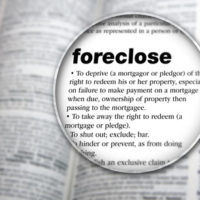South Florida Court Raises Questions for Foreclosure Defense Cases

A recent foreclosure defense case out of South Florida has many borrowers concerned. Specifically, in this case, although the borrowers ultimately won the case against the bank, they were not awarded attorneys’ fees. Below, we discuss some additional details of the case and decision, and also provide some guidance on how those of us who work in foreclosure defense will likely address the issue in the courts.
The Law in Florida
Legal fees have historically been granted in foreclosure cases under the provisions of a Florida statute which allows a prevailing party to recoup legal expenses. Specifically, it dictates that a contractual attorney fee entitlement provision is to be applied to the benefit of both parties even if the provision, as written, operates in favor of only one party. One example of attorneys’ fees being awarded to borrowers under this statute could include the bank or lender not having “standing,” which we discuss in greater detail below.
Successfully Challenging the Bank’s Standing
In this case, the borrowers successfully argued that the bank failed to prove ownership of the debt by failing to prove that it was transferred to the bank. This is actually a common issue, as, during the financial crisis, many investors in the secondary debt market transferred loans so quickly that they failed to dot their i’s and cross their t’s in completing the legally-required paperwork. This lack of paperwork then allowed borrowers to challenge a bank’s “standing” (i.e. the ability of a party to demonstrate a sufficient connection to that case; for example, in this case, the bank had no “standing” because it was not a party to the original loan transaction).
The Surprise Decision Regarding Attorneys’ Fees
The judge granted the borrower’s motion for attorney’s fees. However, the appeals court overruled the judge precisely because the bank was not a party to the note and mortgage. The decision is alarming because it arguably means that banks can bring foreclosure without having standing, without worrying about the financial consequences of such actions, which is arguably egregious. If banks aren’t on the hook for attorneys’ fees, they could very well be more eager to file, regardless of the circumstances or strengths and weaknesses of each individual foreclosure action.
However, this does not mean that successful foreclosure defense attorneys are forever-barred from seeking attorneys’ fees; it simply means that, in some cases, they will likely seek to utilize other means within the law to seek attorneys’ fees when justice demands it, such as another statutory provision that permits the award of reasonable attorneys’ fees to a prevailing party when the court finds that the losing party or their attorney knew or should have known that a claim or defense was not supported by the material facts necessary or would not be supported by the application of the law to those facts.
Florida Foreclosure Defense Attorneys
Your home is most likely your most valuable asset and you’ve worked hard for it. Lenders are frequently eager and quick to foreclose, even though mistakes are frequently made, and the law is often on the borrowers’ side.
At Suncoast Civil Law, our foreclosure defense attorneys work hard to provide you with all of the defenses you need to ensure you are protected in these matters. Contact our office in Sarasota, Florida today to find out more.
Resource:
law.com/dailybusinessreview/sites/dailybusinessreview/2018/02/12/south-florida-court-ruling-is-a-catch-22-for-foreclosure-defendants-looking-to-collect-attorney-fees/
